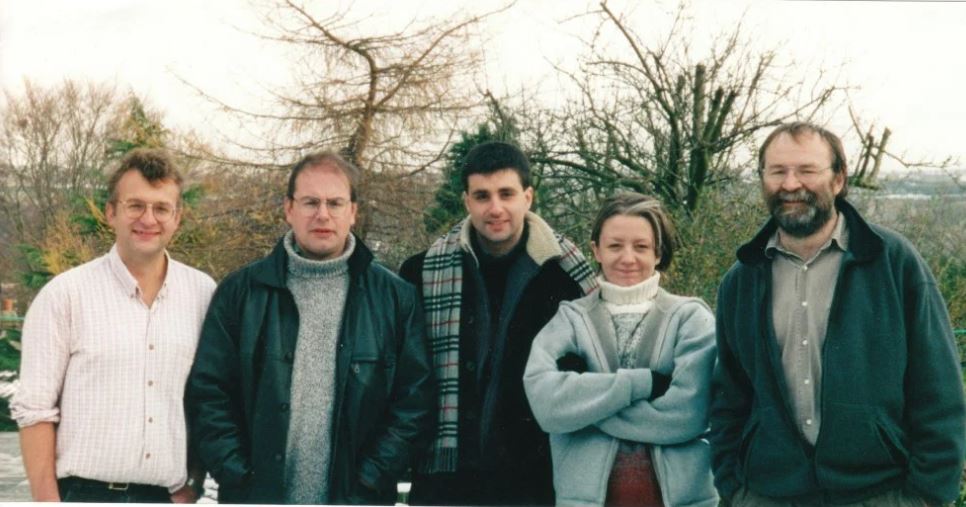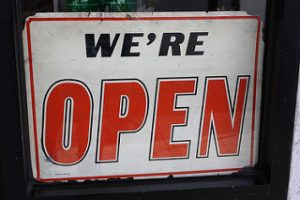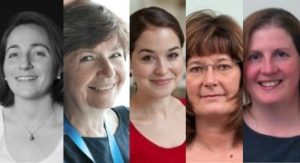The entire back catalogue of the journal Imprints: Egalitarian Theory and Practice has been made freely available by Professor Catriona McKinnon, of the Department of Politics and International Relations, who was the journal’s editor for several years.
Author: hm903488
Present your research in Parliament: apply for STEM for Britain 2019

Samantha Mudie presents her poster in Parliament
Early-career and student research scientists, engineers, technologists and mathematicians have until 3 December to apply for STEM for Britain 2019.
Shortlisted entries will be asked to present their posters at an event in the Houses of Parliament on Monday 11 March, as part of British Science Week. Prizes are awarded for the posters in each discipline which best communicate their science to a lay audience, with the best overall poster winning the Westminster Medal.
Alzheimer’s researcher invited to the Captains’ table in San Marino

Dr Francesco Tamagnini
A University of Reading researcher has been honoured with a reception in his home country of San Marino.
On the 13th of August 2018, the Most Excellent Regent Captains of the Republic of San Marino received in a private audience five San Marino citizens working abroad and excelling in their own respective fields.
Dr Francesco Tamagnini, Lecturer in Pharmacology at the University of Reading School of Pharmacy, was one of the five, and had the chance to talk about his research into Alzheimer’s Disease and how his career path took him from San Marino to Reading.
Global projects win funding among latest research awards
Researchers working across national borders feature prominently in the latest group of University of Reading academics to be awarded research funding.
In total, £12.5 million of funds were awarded during the third quarter of 2017-18, to 80 projects across all five research themes at Reading: Environment, Food, Health, Heritage & Creativity and Prosperity & Resilience.
When soil and swing collide: science at the Big Band Big Lunch
 On Sunday (3 June) the University brought together staff, students, and people in Reading for the Big Band Big Lunch. Jeremy Le Lean, communications officer of the Soil Security Programme, explains that research, like jazz, is often best with a live audience.
On Sunday (3 June) the University brought together staff, students, and people in Reading for the Big Band Big Lunch. Jeremy Le Lean, communications officer of the Soil Security Programme, explains that research, like jazz, is often best with a live audience.
As a science communicator I attend a lot of events, but not many like the University of Reading’s Big Band Big Lunch. The music and street food vendors gave it more the feeling of carnival rather than science engagement.
There will be another Alfie Evans. Experts need to engage
Academics have a duty to speak to the media, especially in tragic and complex cases, argues Tom Sheldon, Senior Press Manager at the Science Media Centre.
“How many more Charlies and Alfies must be paraded in front of us before we realise that keeping quiet only makes things worse?”
 In July 2017 the story of Charlie Gard, a baby with incurable mitochondrial disease, played out across the media. By April 2018 we all knew the name Alfie Evans, another little boy with another untreatable condition. In both cases the medical teams and the courts agreed nothing could be done. Both children have since died. There’s nothing enjoyable or satisfying about these stories. They are profoundly sad.
In July 2017 the story of Charlie Gard, a baby with incurable mitochondrial disease, played out across the media. By April 2018 we all knew the name Alfie Evans, another little boy with another untreatable condition. In both cases the medical teams and the courts agreed nothing could be done. Both children have since died. There’s nothing enjoyable or satisfying about these stories. They are profoundly sad.
Nine months after Charlie Gard, and the rest of us watched as Alfie’s Army demonstrated outside Alder Hey Children’s Hospital and his parents were locked in bitter dispute with the medical team. For a second time, a battle over the life of a child none of us knew had become major news, and the need for expert voices to be heard in the media and by the public was as strong as ever. Yet with a few notable exceptions, the rest of the medical profession once again failed to show up, allowing misinformation around Alfie Evans to take hold. Nine months after Charlie Gard, and we have dismally failed to learn any lessons.
‘Engage openly’ during elections, academics urged
University of Reading academics should remain engaged in public debates, even while elections are imminent in the UK, says Professor Steve Mithen, Deputy Vice-Chancellor.
This week there are a number of local elections across the UK. This means that government departments and agencies are subject to the so-called rules of ‘purdah’, or pre-election period, restricting what can be discussed in public by civil servants.
Have your say on Open Research: the future, or fool’s charter?
By Dr Phil Newton, Research Dean
The University wants to open up all elements of research at Reading.
But open research is controversial, and there are many different views on it. To some, open research is the future and leads to better studies, more collaboration, and greater impact. To others, it risks giving away your best ideas without clear benefits.
That’s why we need your views now on Reading’s draft Vision for Open Research. You can have your say by completing a short online survey.
Find out more about our consultation or complete the survey now.
On International Women’s Day, female academics are among research funding winners
The University of Reading secured nearly £10m of research awards in the second quarter of 2017/18, latest figures show.
Projects worth £9.8 million were given the go-ahead, with funding from UK research councils, government, industry and charities adding to the total.
The following are among those winning awards between November 2017 and January 2018:
On high AALERT: can art help research into nature?
The visual, performing and literary arts play an important and evolving role in shaping experiences and appreciations of landscapes as well as providing critical and cultural understanding of them.
In recent years, the significance of the arts in landscape and environmental research has been increasingly emphasised, with arts and humanities components now a common, if not required, element in research proposals, such as activities delivered through the Valuing Nature research programme. Similarly, many and diverse landscape management projects with arts-based elements are funded by public money.





